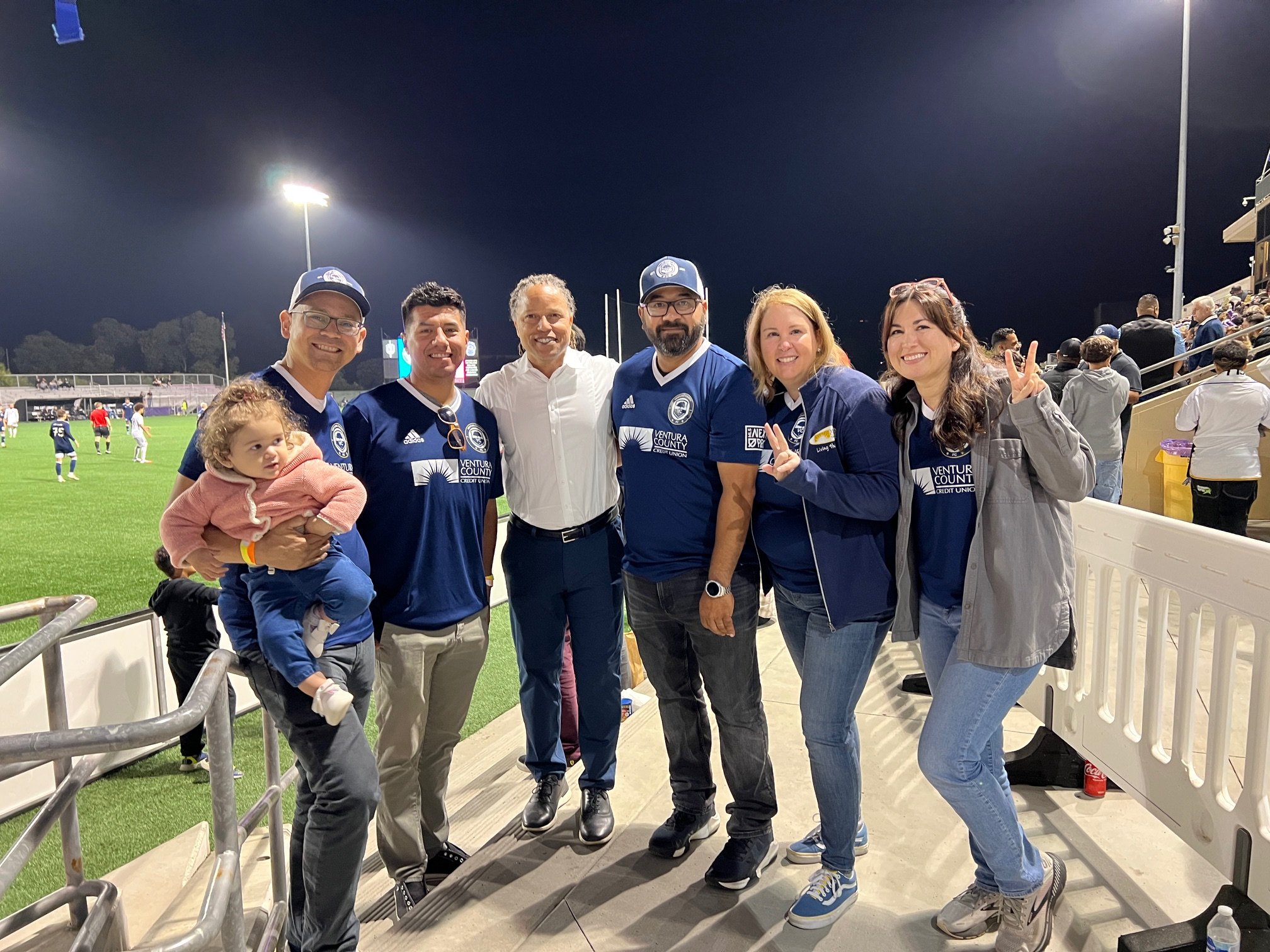WASHINGTON -- During CUNA President/CEO Dan Mica's tenure as spokesman and lobbyist with the association, he has seen changes in how Congress functions and has revamped CUNA's operations to focus more on grassroots efforts, helping the organization fine tune its message.
Credit Union Times recently spoke with him in his office--located on Pennsylvania Avenue between the Capitol and White House--about the climate on Capitol Hill for credit unions and on the overall political situation:
Credit Union Times: How would you describe the environment for credit unions on Capitol Hill and what frustrates you about the way credit unions are perceived there?
Dan Mica: In terms of recognition and acknowledgement of who we are, we're at the highest level we've ever been at. Are we where we need to be? No. They've started to see us as a force to be reckoned with and come to us for help. We try to our help our friends.
We have one of the top 10 PACs and will have close to $4 million. so it will be a record-breaking PAC this year. We're in a position that there is strong recognition of who we are and what we do. We are recognized, but we are not yet feared; that is a big difference. The National Rifle Association is feared, the AARP is feared. The credit union system has not been as proactive as we may have to get, as some of the banks have been. We get reports of bankers threatening to defeat anyone who says anything nice about credit unions. We have not taken that approach with people who have not helped us or been hurtful, we've just taken the positive approach of helping to support those who help. I said 12 years ago when I came to the credit union system that we were a mile wide and an inch deep. Now we're a mile wide and one foot deep or two feet deep, so we have a way to go.
Twelve years ago we were not on anybody's radar and were not considered as an entity in Washington. Now we are. We've made great strides but still have a way to go. We are now at a stage where it is still difficult for us to pass legislation quickly, but we are a stage where we can stop legislation. Part of that is the premise that it's easier to kill a bill than pass a bill, for anybody.
CU Times: What's your assessment of the banks' clout? Are they feared?
Mica: They have taken more of a harsh, negative approach toward credit unions than we have [toward them]. It's difficult for us to be negative; it's not in our nature to be ugly or nasty. We may have to get a little tougher in the next Congress, and we'll be talking and reviewing our strategies in the second half of this year.
CU Times: Is that because of the possibility of having a Democratic president and a Democratic Congress might trigger such things as the Community Reinvestment Act rules on credit unions?
Mica: I wouldn't say in terms of any specific legislation but in terms of members who tell us they want to help us but say, 'I'm concerned about the banks' reaction. We're the white hats' and so it makes it difficult. We did some interesting focus groups a few years ago and found that banks could beat up on credit unions and [congressional] staff would say, 'That's OK because that's what banks do,' but we tried using nasty phrases about banks and they were aghast. They wondered why would credit unions sink to the level of what banks do. There's a higher expectation of us, and that handicaps us.
I am confident that any issue that really impacts the credit union system negatively, we can literally have hundreds of thousands if not millions of people mobilized in short order. Our problem is that issues that touch just some segment of the movement it's harder to get that rallying effort.
CU Times: Talk about the political climate. What impact will the presidential race have on credit unions? You served in the House with John McCain. What impact would a McCain presidency have? An Obama presidency?
Mica: They are coming from two totally different directions. John McCain is coming from the business/market side approach, and Barack Obama is coming from what you might call the consumer/Main Street approach. And so I don't think either one is looking to change our tax-exempt status. In the case of Obama, he may be looking for, as anyone concerned with Main Street or Joe Six Pack, regulation or approaches that minimize opportunities to take advantage of people. Maybe even some what I call 'love me to death' legislation. 'I love credit unions and love what they do and want them to do more, on things like CRA.' With McCain, you'll see more of a Wall Street approach and try to seek tax cuts and regulatory approaches that are similar to what we've had in the last eight years.
CU Times: The Treasury Blueprint on regulatory reform is something; you had, to put it mildly, some strong issues with. What are the chances that parts of it will be passed, especially in a McCain presidency?
Mica: I am absolutely shocked and stunned that the Treasury Department would put that report out in the way they did. I would say for now and for the immediate future that there is no chance that that will get any legs in Congress or the next Congress. It's awful early to start predicting who's going to be in control. But almost all the analyses so far predict that there will be an increase in the Democratic majorities in the House and Senate. All the Democrats in the leadership, and those in positions to deal with issues of interest to credit unions, and most Republicans, have said the proposal is dead on arrival. As one of the league presidents said to me: 'This Treasury Blueprint, is like a dormant virus. It's on a shelf and could be back at any time.' They came up with that, especially the part on credit unions (which could regulate them out of existence), without regard to the consequences. And the consequence is it could hurt half the population financially. We are the benchmark for low-cost financial services.
CU Times: Any recollections of McCain when you served together? I know you were on different sides of the aisle. Were you close?
Mica: I had very high regard for him. He is very smart, very capable. We got along very well. We were not social friends who went out every evening, but I have nothing but the highest regard for John. He did vote for 1151. Between Obama and McCain we only have one recorded vote to look at and McCain was with us (and Obama wasn't in Congress). We don't have any reason to believe he [Obama] would be anti-credit union. My best recollection was that the Arizona folks and the Illinois folks have good relations with the two candidates. But I do know this, regardless of who is in office, there always will be pressure to raise revenues so we always have to be on guard. The deficit is extremely high. But we can show that the amount of money that would remain in consumers' pockets far outweighs the meager revenue from a tax on credit unions.
CU Times: Have you met Sen. Obama, do you have any impression of him?
Mica: I just shook his hand at a reception.
CU Times: Lobbyists have been demonized by both candidates. How has the lobbying industry changed in the time you've been lobbying? Is the talk about changing the system just talk and will it be back to business as usual after the campaign?
Mica: When I first came here, it was a more bipartisan approach. The lobbyists with good information have always been welcomed. Those who become political operatives who operate in the gray edges have created the current climate and caused a recoiling by some members in their dealing with all lobbyists. Fortunately, people like CUNA have not been caught up in that. We have a bipartisan PAC, we try meticulously to only present legitimate fact and argument and they can be debated. But we are the real thing when it comes to grass roots, the real thing when it comes to representing consumers. There has never been an accusation that we have generated phony lobbying letters. They come from the heart and come with names and addresses of who wrote them. Those who have been on the edges and been extreme on either side will pay a price, but we are the poster child of how to advocate in a democracy. But the overreaction will subside.
CU Times: Were you pressured by Republicans when they controlled Congress to only hire Republicans?
Mica: I heard of others who were pressured, but we were not. And I heard from many people on both sides of the aisle who said they hated that.
CU Times: When you talk to your members, what's the biggest misconception they have about how things work in Washington?
Mica: Our league presidents are very politically savvy. But sometimes when I talk to credit unions they say, 'Pass this bill. Write it up, tell them what you want, don't take anything less and just pass it. Talk to Charlie or Bill because he's with us.' Well, Charlie and Bill are with us until there are specifics, and then they are under pressure about who they are going to offend, because it's an election year. Sometimes there isn't that recognition. Usually they realize you don't eat the whole apple at once, but take a little bit at a time.
CU Times: How does money influence the process?
Mica: Votes trump money every time, but you can't be successful without money. We have the money, in terms of a PAC, but we also have the followership in terms of issues. Any member of Congress who gets on a radio show and defends banks at the expense of credit unions, will get eaten alive.
Complete your profile to continue reading and get FREE access to CUTimes.com, part of your ALM digital membership.
Your access to unlimited CUTimes.com content isn’t changing.
Once you are an ALM digital member, you’ll receive:
- Breaking credit union news and analysis, on-site and via our newsletters and custom alerts
- Weekly Shared Accounts podcast featuring exclusive interviews with industry leaders
- Educational webcasts, white papers, and ebooks from industry thought leaders
- Critical coverage of the commercial real estate and financial advisory markets on our other ALM sites, GlobeSt.com and ThinkAdvisor.com
Already have an account? Sign In Now
© 2024 ALM Global, LLC, All Rights Reserved. Request academic re-use from www.copyright.com. All other uses, submit a request to [email protected]. For more information visit Asset & Logo Licensing.









